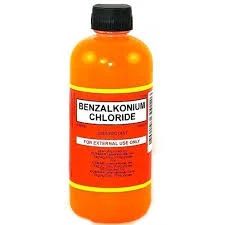flocculation chemicals
Flocculation is a crucial process in various industrial applications, particularly in water treatment, mineral processing, and food production. The term refers to the agglomeration of fine particles into a floc or cluster, which can then be easily separated from a liquid. The effectiveness of flocculation largely depends on the use of flocculants—chemicals that promote this process by neutralizing the charges on suspended particles, thus allowing them to come together and settle more rapidly.
Different types of flocculants are available, including natural and synthetic polymers. Natural flocculants are often derived from plant or animal sources, such as guar gum and chitosan, and are biodegradable, making them environmentally friendly options. Synthetic flocculants, on the other hand, are typically made from polyacrylamide or other petrochemical products, offering higher efficiency and faster settling times but potentially with adverse environmental impacts if not managed properly.
The choice of flocculant depends on various factors, including the type of particles being treated, the characteristics of the liquid, and the desired outcome. For instance, in wastewater treatment, positively charged flocculants are commonly used to aggregate negatively charged particles, leading to improved clarity and reduced chemical oxygen demand (COD). In mineral processing, flocculants help in concentrating ores and facilitating the recovery of valuable minerals.
flocculation chemicals

The dosage of flocculants is also critical. Too little may result in inadequate floc formation, while too much could lead to excessive polymer residue or negatively impact the final product quality. Therefore, it is essential to conduct jar tests or lab-scale experiments to optimize flocculant use before full-scale application.
In conclusion, flocculation is a vital technique that enhances the efficiency of various industrial processes. The selection and application of flocculant chemicals play a significant role in achieving optimal results, affecting the quality of treated water, the recovery of minerals, and the overall sustainability of these processes. As industries continue to seek more efficient, eco-friendly solutions, the development and innovative use of flocculation chemicals remain a dynamic area of research and application.
-
lk-319-special-scale-and-corrosion-inhibitor-for-steel-plants-advanced-solutions-for-industrial-water-systemsNewsAug.22,2025
-
flocculant-water-treatment-essential-chemical-solutions-for-purification-processesNewsAug.22,2025
-
isothiazolinones-versatile-microbial-control-agents-for-industrial-and-consumer-applicationsNewsAug.22,2025
-
scale-inhibitor-key-solutions-for-water-system-scale-preventionNewsAug.22,2025
-
organophosphonates-versatile-scale-inhibitors-for-industrial-water-systemsNewsAug.22,2025
-
scale-and-corrosion-inhibitor-essential-chemical-solutions-for-water-system-maintenanceNewsAug.22,2025





